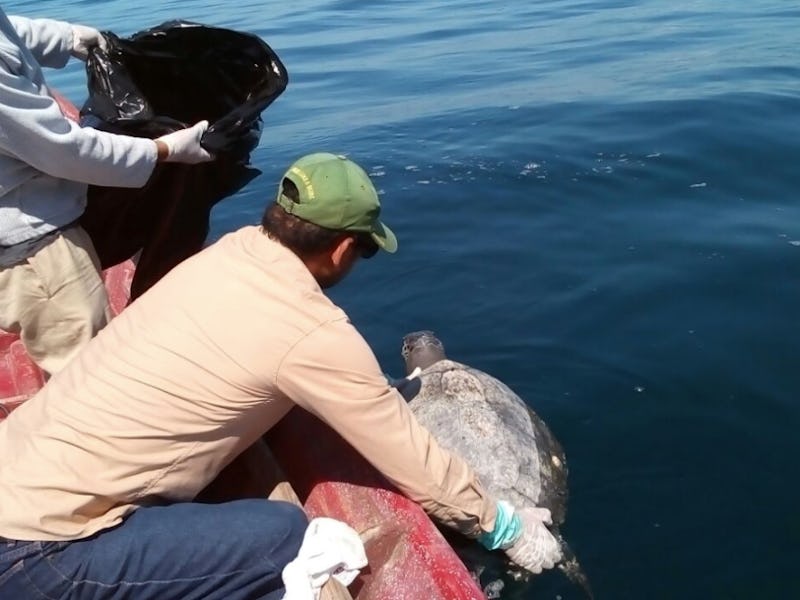Hundreds of Dead Sea Turtles Are Mysteriously Floating Around El Salvador
Absolutely devastating.

On Thursday, El Salvador’s Ministry of Environment and Natural Resources tweeted some seriously disturbing news. Apparently, the agency found 300 to 400 dead sea turtles floating seven nautical miles offshore from El Salvador’s Jiquilisco Bay. Though local authorities say they don’t know what caused the ordeal, a biologist tells Inverse the possibilities are definitely disturbing.
“The majority of sea turtles found are in a state of decomposition,” MARN El Salvador tweeted in Spanish. “It is unknown what caused the death of the sea turtles which were located yesterday near the Bay of Jiquilisco.” The agency added that it will be conducting laboratory tests to ascertain more information on the turtles.
According to David Steen, an assistant research professor at Auburn University and creator of the Living Alongside Wildlife blog, details are too thin at this point to know what caused the unusual event.
“There is not a lot of information provided about the sea turtles so we can only speculate regarding the cause of this mortality,” he tells Inverse. “Given that officials are conducting laboratory tests, we can probably rule out purposeful killing by predators (including people). However, turtles could be drowned in fishing nets. Other potential causes could be stress changed by changing temperatures, a bacteria or virus or even a parasite.”
Oddly enough, El Salvador has experienced similar sea turtle deaths several times in the recent past. In September and October of 2013, hundreds of sea turtles were found dead off El Salvador’s coast. Authorities at the time claimed a neurotoxin sometimes formed by algae — called saxitoxin — might have caused it. According to EcoWatch, saxitoxin killed roughly 100 sea turtles back in 2010, and another 500 even before that, in 2006.
Without the lab results back, it’s almost impossible to say what could’ve caused this tragedy. Sea turtles are already very vulnerable due to habitat loss and poaching. Hopefully understanding this mass death will help conservationists prevent it from happening again in the future.